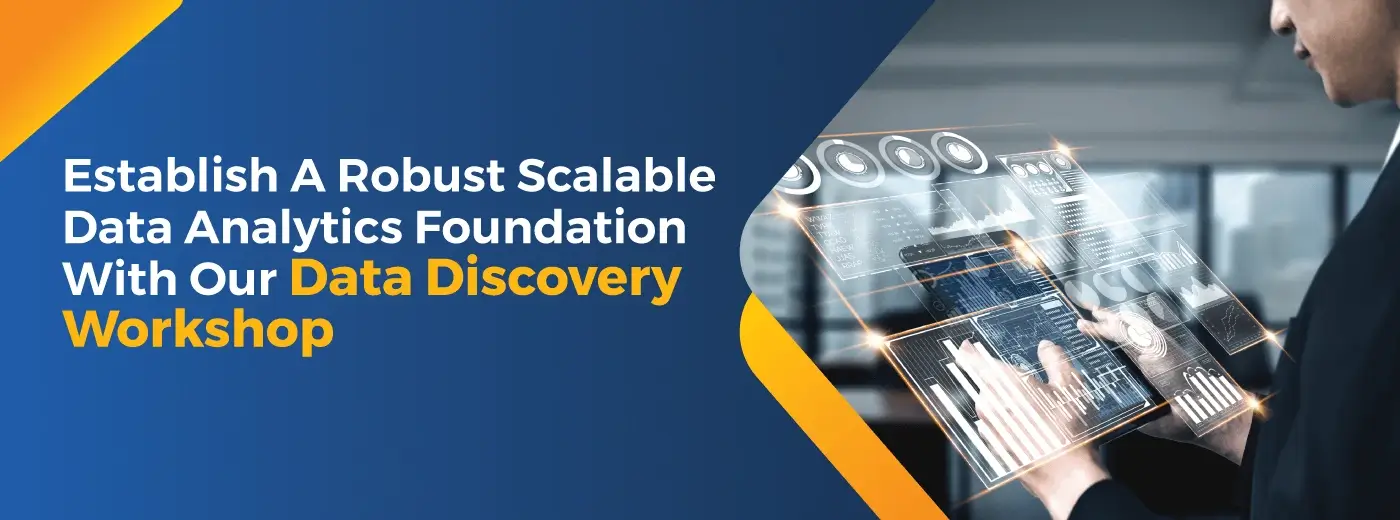
Sign up to receive latest insights & updates in technology, AI & data analytics, data science, & innovations from Polestar Analytics.
Increasingly, business is moving at the speed of curiosity. The ability to answer critical questions about what exactly organizations need in order to use data more effectively; what processes are required to make sure that the data is high quality and accessible; what technology will enable the sharing, storage, and analysis of data; and the data required, where it is sourced from, and whether it’s of good quality. Answers to these questions reside somewhere within the vast landscape of a company’s information sources. However, these insights into the light require a rich, scalable foundation of integrated and reliable data.
Unfortunately, many companies don’t have a robust data foundation in place today, preventing them from getting the answers they need. Today organizations know the importance of unifying data, but enterprises are facing challenges because of numerous departments, data fields, bulk reports, offices in multiple geographies, regulations, different practices, use cases, and consolidating data from disparate sources. In the same way, there are numerous challenges encountered by organizations when it comes to insights. For instance, an organization with some level of BI and analytics capabilities today, but not one that is comprehensive, reliable, or self-service enabled. In such scenarios, results may be distinct and misunderstood, and data delivery may be disjointed and untimely.
In the current scenario, the data landscape is evolving with new technology such as IoT devices, artificial intelligence, Machine Learning, and predictive analytics initiatives- Today, data growth and the usage of data in businesses is no longer a question. The question now is how organizations control it, manage it, secure it, and most importantly, leverage it to transform your business. And that’s where the ‘Design Thinking’ approach comes into play.
Design Thinking is an outcome-driven problem-solving approach that emphasizes creative thought and human-centered thinking with the intent of developing the best possible solution and beneficial outcomes. Using the proven methodology, we ensure you step out of your comfort zone and find non-obvious solutions to trying problems.
Design thinking is a constant process by which organizations seek to determine who the users are, understand the needs and goals, how to address the challenges, and ultimately create innovative solutions that make them more successful. Using a design thinking approach ensures to create an analytics experience that taps into all the rich insights that your data has to offer and presents it in a way that users can readily understand view, and take action on.
Presently, a wide spectrum of industries ranging from manufacturing, financial services, telecom, retail, and more; are beginning to realize the importance of incorporating design thinking into their data analytics architecture to ensure organizational success.
Currently, organizations are looking to begin new things in the right way because success is measured by how well organizations fulfill the users’ needs. For such organizations, they can opt for our discovery workshop which consists of a review and assessment of the requirements and current state of their analytics infrastructure followed by a discussion on the understanding of vision and areas of improvement.
The core objective of the workshop is about finding the right solution. It outlines potential challenges, unique business needs, and pain points in the very beginning and saves the project.
The workshop organized by Polestar Analytics aims at engaging with teams to deep dive into the technical details around the data and systems to be used. In the series, we will create a roadmap with actionable recommendations on how best to implement it in your organization, addressing your user experience requirements, current business & data challenges, and potential insights.
The workshop consists of various levels and assessments of the requirements and current state of your analytics infrastructure. Take a look.
Business Assessment
The assessment starts with the discovery phase, where our analytics experts will conduct interviews with business stakeholders to understand the requirements, business goals, and critical challenges to achieve those goals. During these interviews, we will discuss and identify:
Recommendations
Next, once we get a better understanding of what you have, what it means, how it’s collected, how and where it’s stored and organized, and how users are leveraging it today. We will assess your analytics maturity and examine your current environment through these activities:
As-Is Analysis
After we have a firm grip on your goals, challenges, and current environment, we can develop a detailed roadmap that provides recommendations based on your requirements and environment while aligning them to your prerequisites in terms of resources, budgets, or time. During the process, we:
No project is successful without a proper plan and strategy. In the current scenario, projects require effective management, and this is possible by conducting a Discovery Workshop. These workshops not only keep the stakeholders and teams on the same page and remove any kind of discrepancies within the project. The workshops help organizations focus on alleviating the root cause of business problems, not just the symptoms.
With a business-first approach, we take the time to understand your key challenges and potential opportunities and deliver unprecedented solutions.
Let us understand your business thoroughly and help you start your Analytics Journey with an Analytics Assessment.
Polestar Analytics is a cutting-edge digital transformation & analytics firm committed to solving the most significant industry challenges and being a partner of choice for enterprises as we bring about a data-led transformation of the existing business processes. We bring years of expertise in implementing analytics solutions suited to custom enterprise needs. Our solutions assist enterprises develop conclusive fact-based strategies, empowering users, and delivering a competitive edge. Request a free consultation today.
About Author

Content Architect
The goal is to turn data into information, and information into insights.